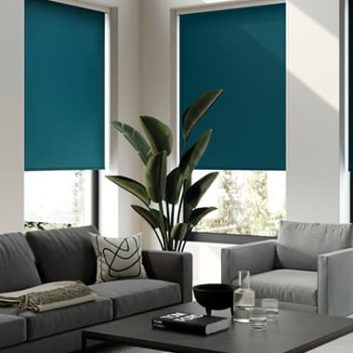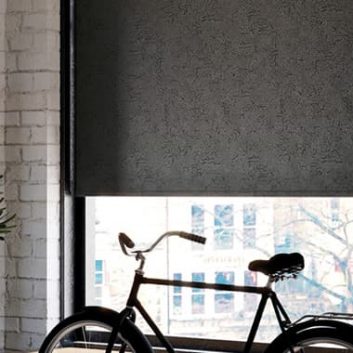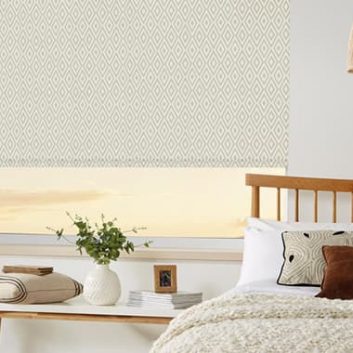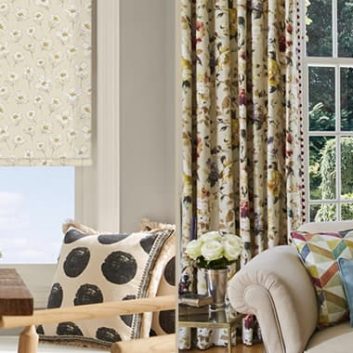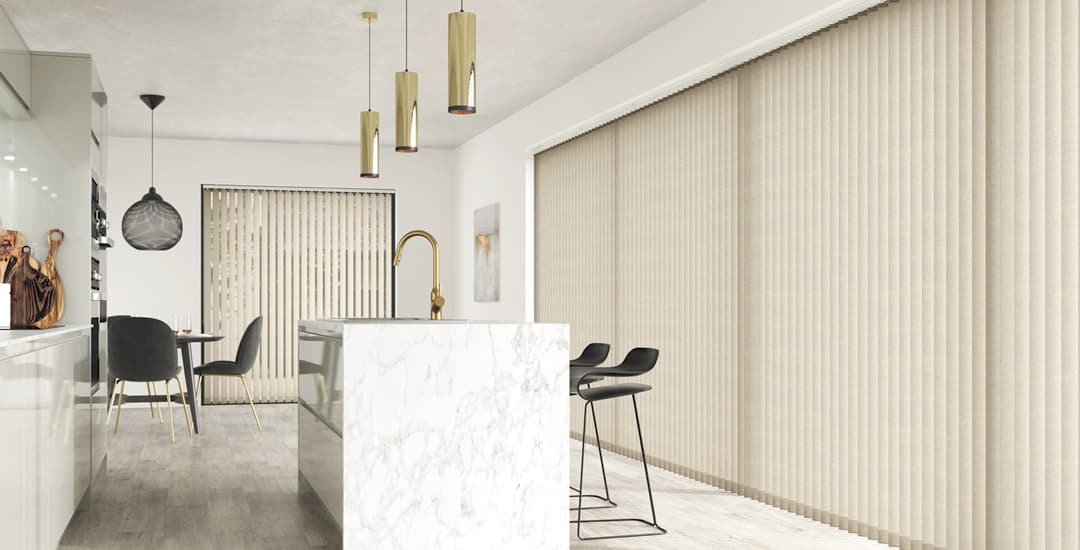
Do kitchen blinds need to be waterproof? This is a yes for the vast majority of kitchens, but there are a few scenarios within which a non-waterproof kitchen blind might be ok too.
However, said scenarios are fairly few and far between; and in this blog post I’ll tell you why kitchen blinds need to be waterproof as a rule, the sort of issues you’ll probably face if you choose a kitchen blind that isn’t waterproof, and outline the sort of scenario or model kitchen in which a non-waterproof blind might be ok.
Why do kitchen blinds need to be waterproof?
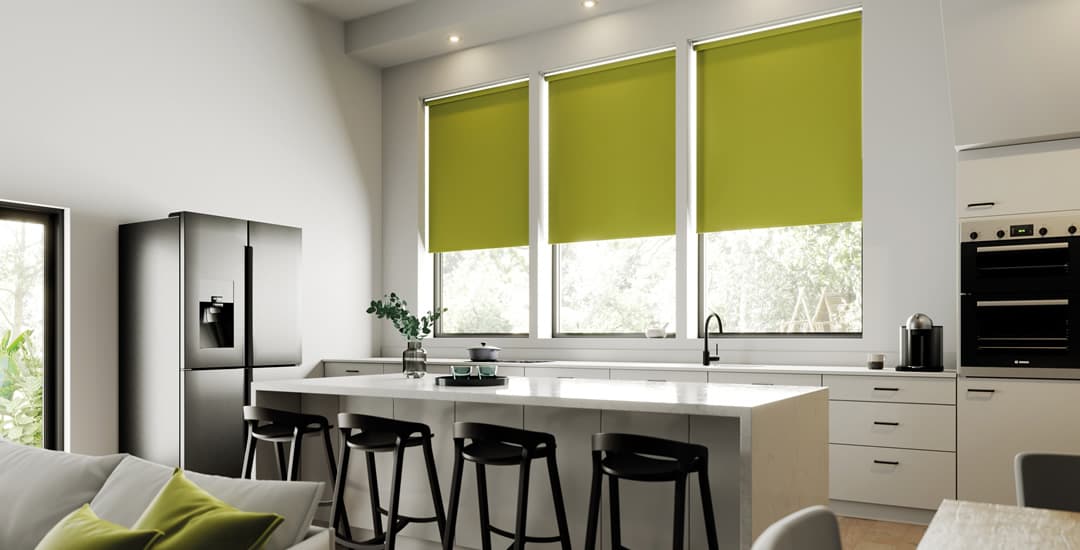
There are four key factors in play here, and they are:
- The potential for the blind to come into direct contact with water or other liquids, such as due to splashes from a sink, or close proximity to a food prep surface.
- Most kitchens will get steamed up to a certain extent when in use (the extent of which can be really variable) which in turn, will settle on your blind and over time, permeate and cause damage to non-waterproof blinds.
- Blinds of all types will get dirty over time, and require cleaning; for blinds in “dry” rooms, this cleaning never usually needs to involve anything more arduous than a light dusting. But within kitchens, both condensation and vapourised cooking fats settling on the blind attract dust to stick to it, which eventually requires washing or wiping rather than dusting in order to fix it.
- The splashes or smears of food, vapourised cooking fats, and potentially, cooking odours are all factors that kitchen blinds need to contend with too, each again requiring potential washing rather than dusting to resolve, and this in turn means that you’ll struggle to wash a non-waterproof blind effectively without damaging it.
What’s the worst that can happen if I pick non-waterproof kitchen blinds, and why?
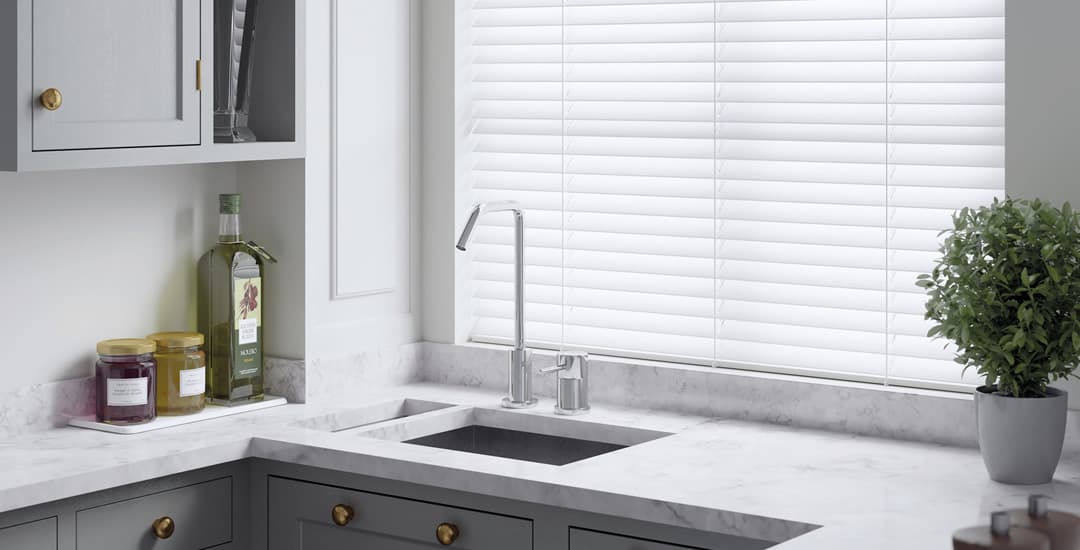
Do my kitchen blinds really need to be waterproof if my kitchen seems to skirt around the edges of these issues?
Well. Maybe not, but if there’s any possibility that the blind might come into direct contact with water and if your kitchen isn’t extremely well ventilated to the point that it doesn’t really suffer from any sort of meaningful level of steaminess or condensation even when you’re cooking in the types of ways that generate a lot of humidity, waterproof blinds are a must.
Even if the above two points (no chance of contact with water and virtually no steaming up when in use) do apply to your kitchen, if you’ve got children or there’s any chance (however remote) that your blinds will get splashed or smeared with food or ingredients, non-waterproof blinds are out of the running once more.
Also, if you deep-fry a lot of your food or cook a lot of strongly scented foods that result in lingering smells that might be unpleasant or even simply overwhelming, unless your ventilation system and/or extractor fans more or less negate the presence of these odours and fats before they reach the blind, any non-waterproof kitchen blind is apt to start harbouring bad odours and developing a film of grease or tacky dirt sooner or later.
The additional issue here then is that a non-waterproof blind cannot be washed or cleaned effectively to remove grease and/or odours when this does happen, which means that you’ll end up facing the Hobson’s choice of tolerating the smell and potentially manky appearance that grease coated in dust interwoven into a blind’s fabric results in, or binning said blind and starting again with a new one.
Do kitchen blinds need to be waterproof if none of these points apply to my own kitchen?
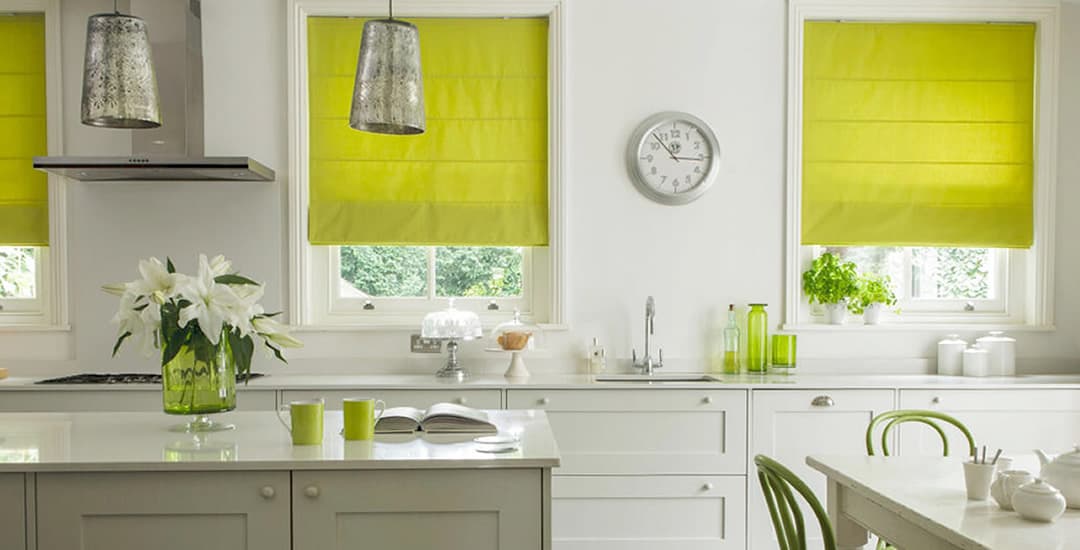
Essentially no, because if none of these points apply to your own kitchen and how you use it even a little bit, your blind won’t face the usual kitchen blind challenges and so can be treated like any other “dry” room for the purposes of window blinds selection.
However, unless you only eat salad (and far from the windows) and/or don’t heat or cook anything, don’t use a kettle or otherwise boil water, or don’t actually use your kitchen for food prep or eating at all, not many people could really say with total honesty that their kitchen would not face any of the mentioned challenges.
A very large kitchen that is also really well ventilated and with the windows/blinds a good way away from the sinks, food prep surfaces, and cooking areas might place non-waterproof blinds in the running.
But even so, unless you have a good reason for wanting non-waterproof blinds and also accept that your kitchen blinds can’t be washed safely and may over time begin to harbour lingering food smells, I still suggest that waterproof kitchen blinds are the way to go.

